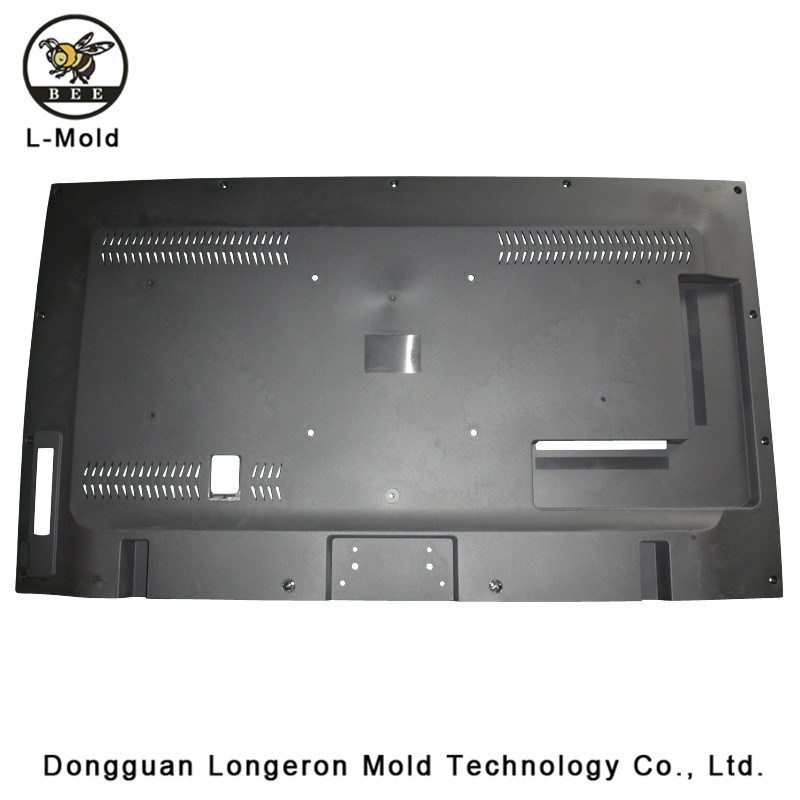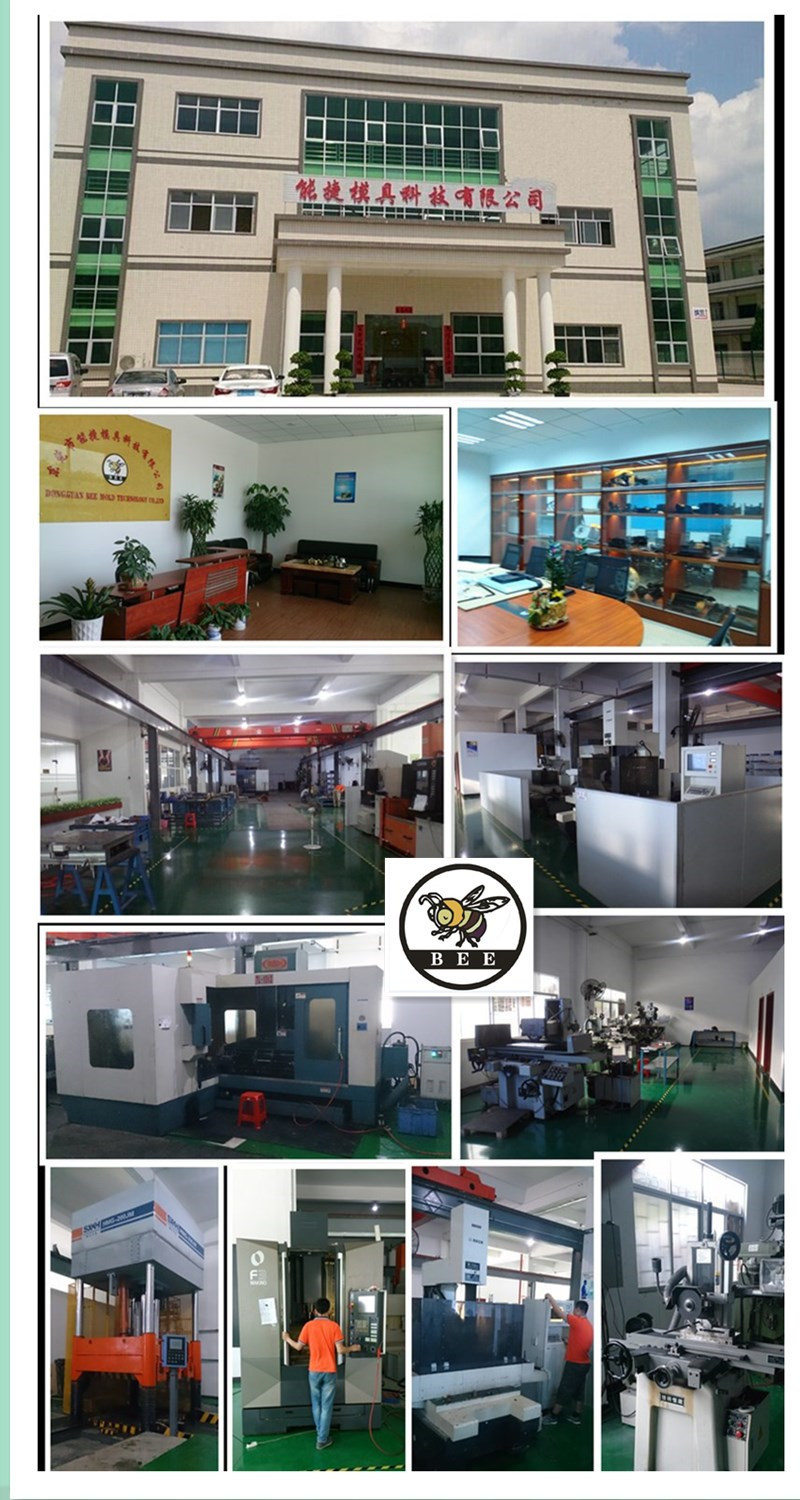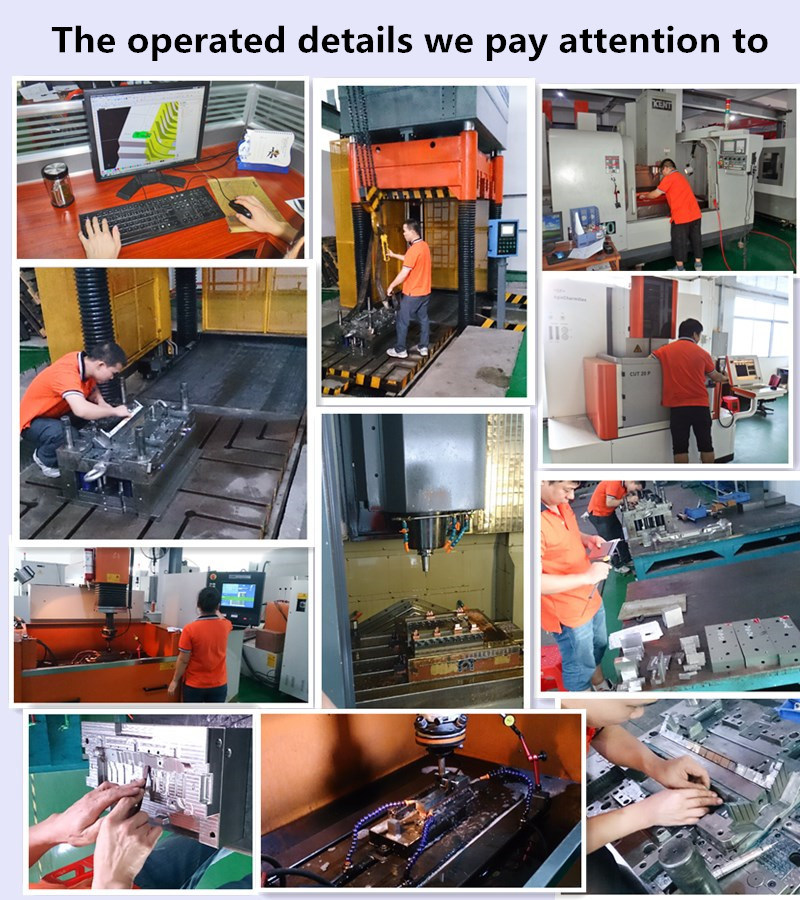- Model NO.: L-092
- Surface Finish Process: Powder Coating
- Plastic Material: ABS
- Application: Household Appliances, Furniture, Commodity, Electronic, Home Use, Hardware
- Design Software: UG
- Certification: ISO
- Customized: Customized
- Mould Life: 500,000~1,000,000 Shot
- Experience We Have: Over 10 Years
- Trademark: can be customized
- Origin: Dongguan, Guangdong Province
- Shaping Mode: Injection Mould
- Mould Cavity: Single Cavity
- Process Combination Type: Single-Process Mode
- Runner: Hot Runner
- Installation: Fixed
- Standard: MISUMI
- Gate: Pin Point Gate
- Cavity: Custom Cavity
- Hardness of Steel: 28-50HRC
- Specification: ISO standard
- HS Code: 8480710090
TV plastic cover injection mould making for Samsung
Household Appliances, Commodity, Electronic, Home Use Professional ODM Injection MoldingÂ
Q&AÂ
Q. I have an idea for a new product, but don't know if it can be manufactured. Can you help?
A. Yes! We are always happy to work with potential customers to evaluate the technical feasibility of your idea or design and we can advise on materials, tooling and likely set-up costs.
Q. What are the advantages to having my parts manufactured locally?
A. Vertex can offer quick reaction times to any changes in specification, batch size or material. We can ship small or large quantities anywhere in Europe overnight to accommodate unforeseen changes in demand.
Q. My components have already been developed on CAD. Can you use the drawings?
A. Yes! DWG, DXF, IGES, Solidworks and Rhino files can all be used to generate quotes, models and mould tools - this can save time and money in producing your parts.
Q. Can I test my idea/component before committing to mould tool manufacture?
A. Yes, we can use CAD drawings to make models for design and functional evaluations.
Q. What type of plastic is best for my design/component?
A. Materials selection depends on the application of your design and the environment in which it will function. We will be happy to discuss the alternatives and suggest the best material.
Â
Q. What type of mould tool do I need?
A. Mould tools can be either single cavity (one part at a time) or multi-cavity (2,4, 8 or 16 parts at a time). Single cavity tools are generally used for small quantities, up to 10,000 parts per year whereas multi-cavity tools are for larger quantities. We can look at your projected annual requirements and recommend which would be best for you.
Â
Q.Ok, I've decided to go ahead with my project. How long will it take to get my parts?
A. It can take 3-6 weeks to have the mould tool manufactured depending on the part's complexity and the number of impressions (single or multi). After we have received final approval by you of the new tool, you can expect delivery of parts within 3-5 days.
 Mould pictures display:
Factory TourÂ


Acrylic curing agents are a type of crosslinking agent used in the production of high-performance coatings and adhesives. Acrylic curing agents are typically used to cure Epoxy Resins, improving their mechanical properties, chemical resistance, and thermal stability.
Acrylic curing agents react with the epoxy functional group to form a thermosetting coating or adhesive. This reaction is exothermic and can be accelerated by heat, making it ideal for high-temperature applications. Once cured, the acrylic modified epoxy resin offers excellent resistance to weathering, UV light, and chemicals.
Acrylic curing agents offer several advantages over other types of curing agents. They are low in viscosity, which makes them easy to handle and mix with epoxy resins. They also have excellent adhesion to a wide range of substrates, including metals, plastics, and composites.
Acrylic curing agents are available in a range of grades, each with its own unique properties and applications. Some grades offer improved toughness and flexibility, while others offer improved chemical resistance or high-temperature performance. The choice of acrylic Curing Agent depends on the specific application requirements, such as cure time, cure temperature, and final properties of the cured epoxy resin.
Acrylic curing agents are commonly used in applications where high-performance coatings or adhesives are required, such as automotive, aerospace, and marine applications. They are also used in the production of electrical and electronic components, where their excellent electrical properties make them an ideal choice.
In summary, acrylic curing agents are a type of crosslinking agent used to cure epoxy resins in the production of high-performance coatings and adhesives. They offer several advantages over other types of curing agents, including low viscosity and excellent adhesion to a wide range of substrates. The choice of acrylic curing agent depends on the specific application requirements, and they are commonly used in applications that require high-performance coatings or adhesives, such as automotive, aerospace, and marine applications.
Acryl Curing Agent,Curing Agent Adhesive,Carboxylic Acids,Epoxy Resin Polyether Amine
Shanghai Shengduan Trading Co., Ltd. , https://www.sdcuringagent.com